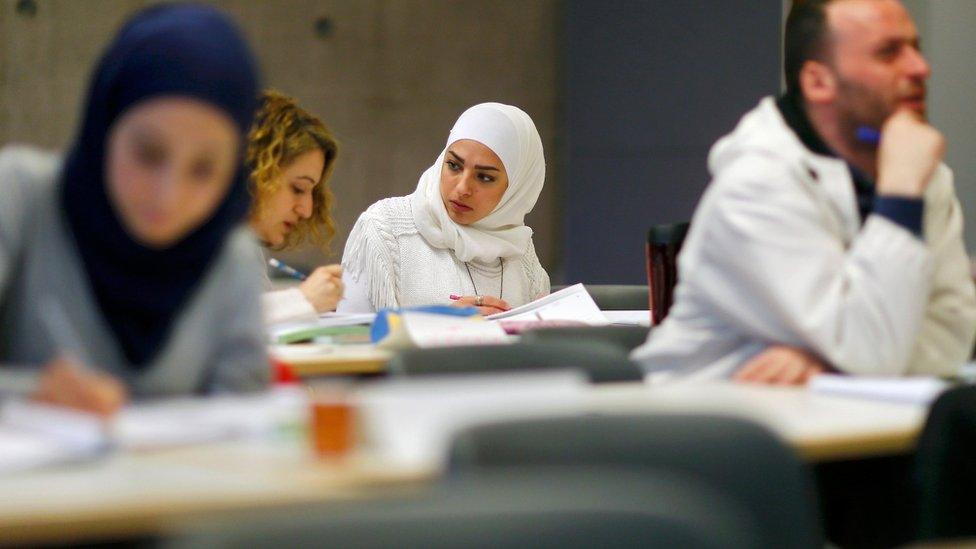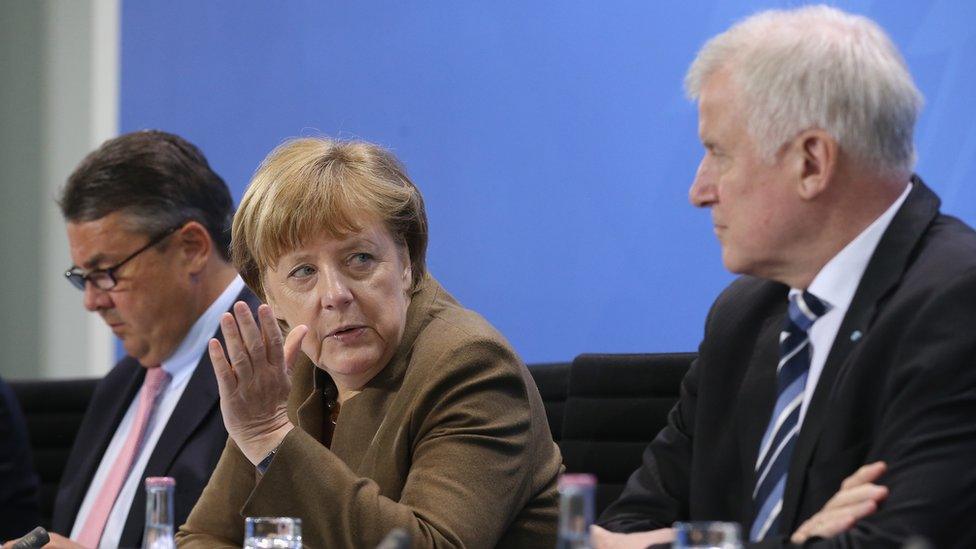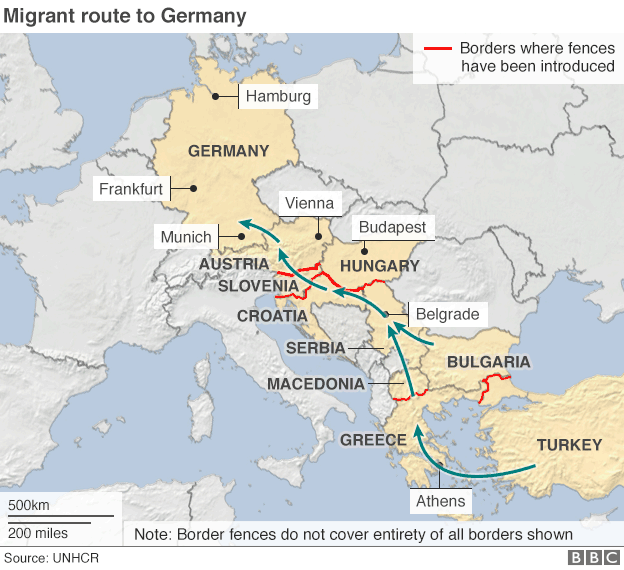Germany moves towards new integration law for migrants
- Published

Migrants who were teachers in their home countries are being trained by Potsdam University to teach in Germany
Migrants arriving in Germany will be required to learn the language under a new integration law proposed by the ruling coalition.
They could also be told where to live under plans agreed after months of disagreement on how to handle more than one million migrant arrivals last year.
Chancellor Merkel said the deal reached at late-night talks held "an offer" and "duties for everyone".
The integration legislation would be a first for post-war Germany.
Under the deal, new arrivals would be given subsidised courses to help them integrate into German life, with language courses and job training.
There are also plans to remove barriers to the labour market and create 100,000 low-paid jobs for asylum seekers.
One such scheme was launched this week by the University of Potsdam, external, just outside Berlin. It is holding courses helping refugees who are trained teachers make the transition to teaching in German schools.
In other proposals:
Any migrants who fail to take up the offer of help could lose benefits and residence permits
In an attempt to prevent migrant ghettos, anyone who moves away from where they have officially been resettled could be penalised
Counter-terrorism measures would allow police to deploy undercover agents and allow intelligence agencies to work more closely with their European, Nato and Israeli counterparts
The deal came after several hours of talks between Mrs Merkel's CDU/CSU conservative bloc and the Social Democrats (SPD).

Mrs Merkel said the deal contains "an offer for everyone, but also duties for everyone"
Mrs Merkel said Germany faced two challenges: to control the flow of refugees into Europe with the help of other European countries, and to register and integrate those who have already arrived.
"We will have a German law on integration - this is the first time in post-war Germany that this has happened," she said. "It is an important, qualitative step."
Vice-Chancellor Sigmar Gabriel of the SPD called it a "historic step" towards acknowledging the "modernisation and opening of our society".
Mrs Merkel has faced huge criticism - from within her coalition as well as among the German public - for allowing more than a million migrants to enter Germany in 2015.
But migrant numbers have slumped in recent weeks as Balkan states began tightening their borders, and an EU deal with Turkey aimed at easing the mass movement of people into Europe came into force.


A note on terminology: The BBC uses the term migrant to refer to all people on the move who have yet to complete the legal process of claiming asylum. This group includes people fleeing war-torn countries such as Syria, who are likely to be granted refugee status, as well as people who are seeking jobs and better lives, who governments are likely to rule are economic migrants.